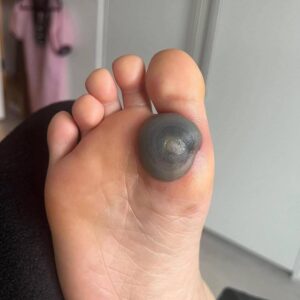Discovering an unusual skin condition on your child’s ear can be alarming, especially when you can’t get a doctor’s appointment right away. It’s natural for parents to worry—about the cause, possible discomfort, and whether urgent care is needed. This article offers practical guidance on what to do while waiting for a medical consultation, helping you manage the situation with confidence and ease your concerns in the meantime..
Understanding Atopic Dermatitis: A Common Skin Condition
Atopic dermatitis, commonly known as eczema, is a prevalent skin condition that affects many children. It is characterized by inflamed, itchy, and sometimes scaly patches of skin. While it can appear anywhere on the body, the ears are a common site due to their exposure to environmental factors and frequent contact with irritants. Understanding this condition can help you identify whether it might be the cause of the unusual skin on your child’s ear.
Identifying Symptoms: What to Look for in Inflamed Skin
When examining your child’s ear, look for key symptoms such as redness, swelling, dryness, or a rash. The skin may appear thickened or have small bumps. Itching is a common symptom that can lead to scratching, potentially worsening the condition. Note any discharge or crusting, as these could indicate an infection that requires prompt medical attention.
Immediate Steps to Take: Managing Discomfort at Home
To alleviate discomfort, keep the affected area clean and dry. Use a gentle cleanser and avoid harsh soaps that can exacerbate irritation. Applying a cool compress can soothe itching and reduce inflammation. Encourage your child not to scratch the area to prevent further irritation or infection.
Home Remedies and Over-the-Counter Solutions
Consider using over-the-counter hydrocortisone cream to reduce inflammation and itching, but use it sparingly and according to the package instructions. Moisturizers or emollients can help maintain skin hydration and create a protective barrier. Natural remedies such as coconut oil or aloe vera gel may also provide relief, but test them on a small skin area first to ensure there is no adverse reaction.
When to Seek Medical Attention: Signs That Require Urgent Care
While waiting for your appointment, monitor the skin for signs of infection, such as increased redness, warmth, pus, or a fever. If these symptoms occur, contact your healthcare provider immediately, as they may require urgent medical intervention. Additionally, if the condition worsens rapidly or causes significant pain, seek medical advice promptly.
Preparing for the Doctor’s Appointment: What to Discuss
Prepare for your child’s doctor’s appointment by noting the onset and progression of symptoms, any home treatments tried, and their effects. Take photos of the affected area to show changes over time. Be ready to discuss your child’s medical history, including any allergies or previous skin conditions, to help the doctor make an accurate diagnosis.
Preventive Measures: Reducing Future Flare-Ups
To prevent future skin issues, identify and avoid potential triggers such as harsh soaps, allergens, or extreme temperatures. Maintain a regular skincare routine that includes gentle cleansing and moisturizing. Dress your child in breathable fabrics to minimize irritation, and keep their nails trimmed to reduce damage from scratching.
Conclusion: Staying Informed and Proactive About Skin Health
While discovering unusual skin on your child’s ear can be worrying, taking informed and proactive steps can help manage the situation effectively. By understanding common skin conditions, implementing home care strategies, and preparing for medical consultations, you can ensure your child’s skin health is well-maintained. Stay vigilant and informed to reduce the likelihood of future issues and promote overall well-being.





